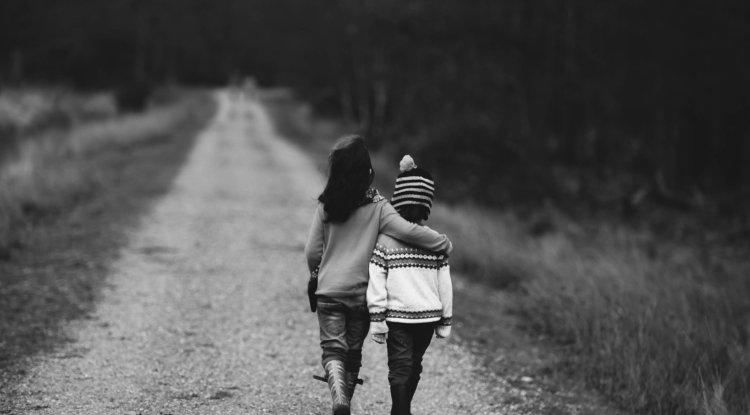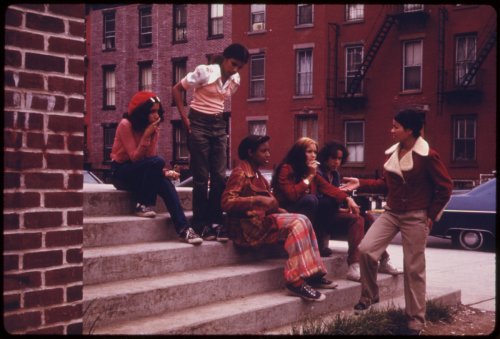Empowering Independence Instead of Putting Your Child Out at 18
The problem with parents putting their child out at 18 is that the child may not be ready. Some children mature faster than others do and some children may need extra time, training and attention from their parents before they hit the world.

When advising parents in the Black community on dealing with their kids, the expected response is, “Don’t tell me how to raise my child,” or “Mind your own business.” This response is typical among Black parents. But some people need help whether they like it or not because many kids today are damaged goods and simply not ready for the world.
The hard truth is, many cultures have traditions of raising children that extend into the community, like it once was in the States and especially in the Black community, but personal ego and arrogance have locked people into a world of self-centered emotional trauma and the village mentality has been scrapped by the Black community.
Nations around the world still value the community method of raising children and it continues to work. Children are expected to follow cultural transitions into adulthood and the children are celebrated by the community when they do, and they make it out into the world as responsible adults.
From the Far East Asian community to Brazil to Malaysia, Kenya, and even Amish communities remain dedicated to valued traditions that help children grow into adulthood. The Black community must return to some sense of normalcy and shed the selfishness of the individual, go-at-it-alone mindset and allow people who have been through the child-rearing ordeal to offer sound advice.
One similarity among other nations is that children are introduced to adulthood values and skills beginning as early as 10 years old and, in some countries, do not go out on their own until age 20. The natural age for children to learn hard core values is at age 12. At this age, the child’s brain and emotional development is mature enough to handle the basics of personal responsibility and characteristics such as promptness, routine, cleanliness, saving and all other basics of life. And by this time, they should have the know-how of having respect for others.
Spoiling a child into a wasteful mindset will ruin the child’s respect and appreciation for what they have and for the property of other people. A child at 13 years old that destroys their own property and that of others have been deprived of home training and the parent is mainly to blame. To remedy this problem, parents must use a firm sense of discipline, not necessarily spanking them (that should happen during the early ages of 1-3 on the hands), but discipline as in not allowing them to get their way and learning to express themselves though words and not tantrums.
Unfortunately, if the parent does not teach their children discipline when young, and the child turns 18, many parents in America believe the child should be ready for the world, and it has become a past-time to basically put the child out of the house and let them fend for themselves. But if the child has no home training they will struggle and fail at life and probably get into situations that could have easily been avoided.
The problem with parents putting their child out at 18 is that the child may not be ready. Some children mature faster than others do and some children may need extra time, training and attention from their parents before they hit the world. A parent cannot expect each individual child to make it in life at the same pace as others. Some kids are born strong and some need extra attention. The parent must know the difference and know when a child is actually ready for the world instead of assuming they are.
It is basically the parent’s responsibility to make sure they have trained the children from an early age (10-12) to know the difference between right and wrong, the dangers of society and who to watch out for, and how to find resources that will help them once they are on their own. How to make appointments, talk to authorities, be professional when needed and what people are good for them and which ones are not.
To throw a child to the wolves and not prepare them is a recipe for them returning home early. It is always a roll of the dice with kids, but if the parent know they did their job to prepare them, they cannot take all the responsibility of a failed child.
Another value that strengthens a child’s chances to succeed is providing them a home of peace and love, security, and one that is drama free. This way, when the child hits the world, if they run into a situation that is contrary to the way they were raised, they will back away. A peaceful and structured homelife is extremely important to a child for them to build a strong character and to know who they are and where they stand as a person. Confidence, self-determination, and the need to know they can exceed the unexpected is valuable training.
If a child is constantly berated, put down, and talked down to, they will hit the world with low self-esteem and will not be able to handle certain situations of their job, in school, marriage, and among other people. A parent cannot neglect a child throughout their youth and then throw them into the world and expect good results. It will never work. They need to know how to take care of themselves and not depend on others, pay bills, not be wasteful with money or food, care for their health, stay active and believe in and fight for something worthwhile.
Of course, there are many values and skills that children need to survive, the important thing is they have some skills and are ready for the world when they are truly ready, not at the random age of 18. Some kids are ready to leave home earlier than 18, but some are not and those who are not should be given time to prepare. The parent should not be insensitive and ignorant to the selfish traditions of American individualism, which can make life harder than it should be and set that child up for failure.

















